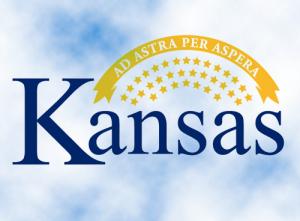Kansas Outlines New Program for Accelerated Pipeline Replacements

Following two years of what it termed "intensive" study, the Kansas Corporation Commission has instructed the state's three largest natural gas local distribution companies (LDCs) to map out definitive plans for the replacement of aging and obsolete pipeline segments. Such projects are to be implemented on a fast-track basis.
In initiating its inquiry in early 2015, the commission said it had been prompted to act in part because of the deadly gas pipeline explosion that occurred in San Bruno, California, in 2010. The commission noted that that blast had been attributed to a combination of poor recordkeeping, lax inspection and repair practices, and deteriorating pipeline materials. Seeking to prevent a similar event in Kansas, the commission deemed it expedient to order the LDCs to advance their current timetables for upgrading and replacing their unprotected bare steel mains, unprotected bare steel service/yard lines, and cast iron mains.
According to the commission, those particular facilities were singled out because they have been shown to be prone to leaks and corrosion. Moreover, after analyzing the data provided by the LDCs, the commission expressed doubt that the companies' existing pipeline replacement schedules were adequate for assuring public safety and service reliability.
Cognizant that a speedier pipeline replacement project can necessitate substantial capital outlays, the commission crafted a new accelerated replacement program (ARP) through which to assist the LDCs in funding the required work. The program was established initially as a four-year pilot plan. The commission said that in an effort to assure cost-effectiveness and utility accountability, it had attached a number of conditions to an LDC's participation in the ARP.
For one, each company must prepare and file a 10-year pipeline replacement strategy. The plans are to be detailed and must present a matrix that identifies each pipeline section to be replaced, the anticipated timeline for each individual project, and the estimated cost of the work. The companies were ordered to file annual progress reports thereto.
The commission conveyed that actual funding for the replacements will come from an ARP surcharge that the LDCs can add to their monthly bills. However, in the interest of rate stability, the ARP charge for residential customers was capped at 40 cents per month, at least initially.
The three LDCs that must participate in the ARP are Atmos Energy, Black Hills Energy, and Kansas Gas Service. Of the three, the commission was especially critical of Atmos Energy's current pipeline maintenance and replacement protocols.
According to the commission, although the LDC has an "expansive inventory of increasingly leak-prone obsolete pipe," there has been a "dearth of action" on its part to remedy the situation. It thus declared the ARP to be particularly important for Atmos Energy. Re Acceleration of Replacement of Natural Gas Pipelines, Docket No. 15-GIMG-343-GIG, Sept. 12, 2017 (Kan.C.C.).



